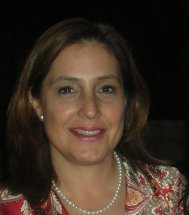

Two Mexican American Faces
Mexican Americans professionals come from every place in the spectrum of what we may consider “new arrivals to our country” to professionals who are descendants from many generations of Mexican Americans living in the United States.
I want to introduce you to two professionals who meet these criteria. Flor, on the one hand is a first generation Mexican American professional who has lived her early life in Mexico and has decided to move to the United States. On the other side we have Dan whose’ family has lived in the United States for many generations.
Here are their stories.
 Name: Flor Elena Garcia-Urias
Name: Flor Elena Garcia-Urias
I live in El Paso, TX. and currently working full time at an adult learning center for 8 years. I teach English as a Second Language, conversation, reading, and transition to college classes. I also work part time at El Paso Community College. I’ve worked here for 6 years and teach a Curriculum Development class to rural Central American and Caribbean teachers. Working as an educator is my passion and I cannot see myself doing something different. I believe that one person can make a difference to change the world, and I chose teaching adults.
What motivated you to follow your particular career path? Family, friends, vocational tests, other?
A cousin inspired me to become a Special Education teacher, therefore I got my degree in elementary education specialized in Special Ed. There, I met Dr. Elva Durand, a professor, whom I worked with on a few projects; she is a very strong advocate for minorities such as ELL’s and Special Ed. Kids. I worked in my career for a while, but decided to become a full time mom to raise my children although I was always involved in some kind of activity related to education. Before I knew it, my children grew and started to leave for college; it was time to go continue my career. It was a big eye opener since I realized everything had changed; I had to go back to school and got my Master’s degree in Curriculum and Instruction and specialized in ESL. Although it was hard to work, go to school and take care of teenagers, I enjoyed this time immensely and met new friends; committed and revolutionary professors and classmates.
What part of you-if any-do you consider Mexican American? Has this been a positive or negative influence on your career path?
I grew up in Cd. Juarez, Chihuahua and came to live to the US in my late teens to start college. Nowadays, I consider myself a human being that is part of the world. After knowing people from different cultures and backgrounds, I don’t think I can say I consider myself one or the other. I feel fortunate because I know Mexicans, Anglo-Americans, Native Americans, Chicanos, Mexican Americans, Hispanics from different countries, and a few from other continents; they all have influenced me, transformed me, and educated me in many ways. However, my foundation, my principles, and many of my customs are Mexican.
 Name: Dan Herrera
Name: Dan Herrera
In addition to working as an artist, I’ve been teaching as an Adjunct Professor for the past 6 years. I teach various design software, and photography at American River College, and at The Art Institute of California, Sacramento.
What motivated you to follow your particular career path? Family, friends, vocational tests, other?
I’ve always enjoyed photography and graphic design. My family has always been very supportive. After graduating with my BFA from San Jose State University, I spent a year or so freelancing and working on a loading dock to make ends meet. Eventually I landed a Full-time position as an in-house designer. Continue reading


